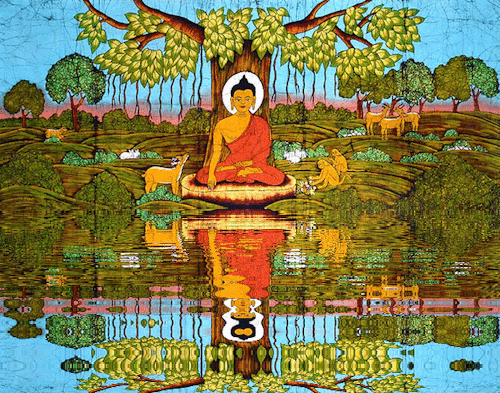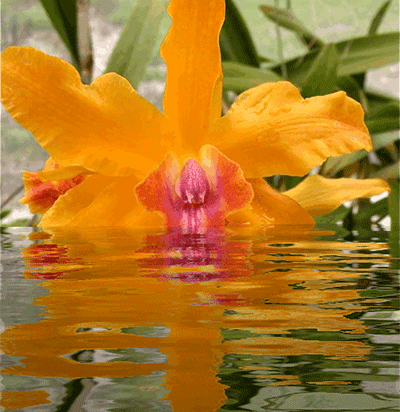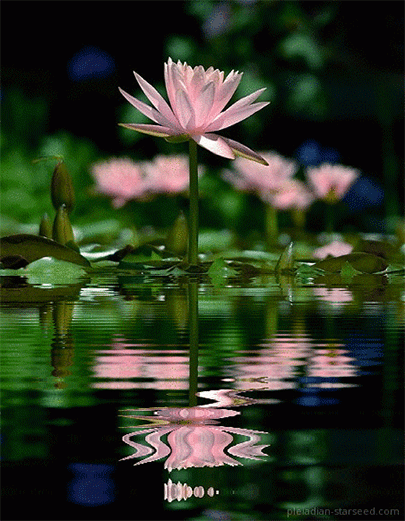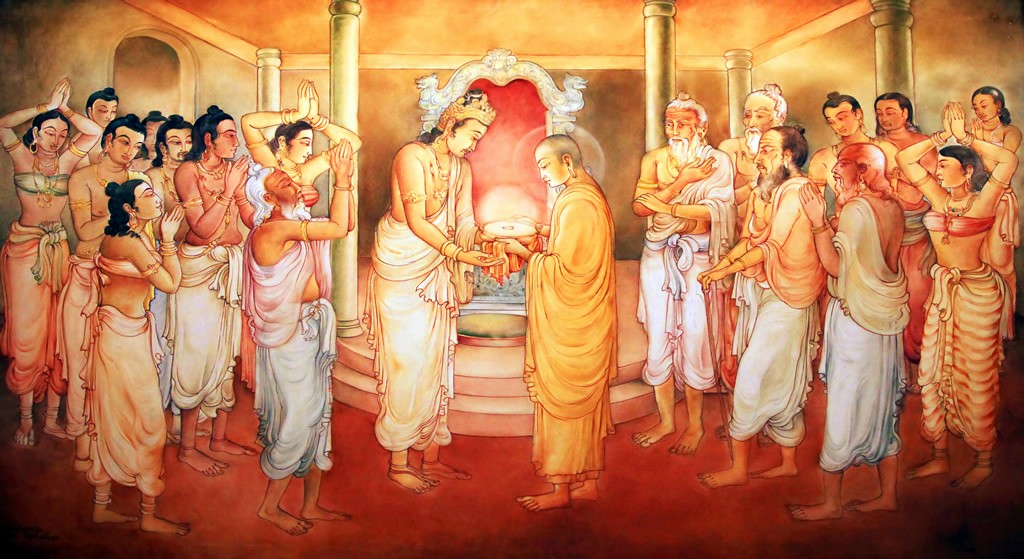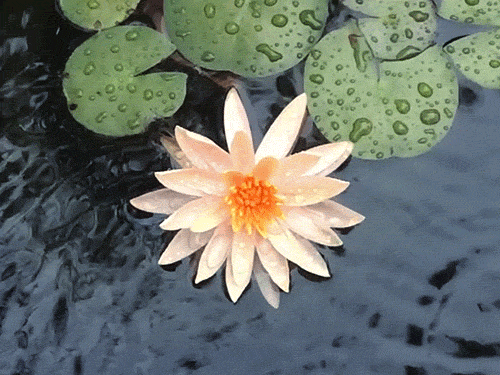
Verse 80: Farmers (lit., makers of irrigation canals ) channel the water; fletchers straighten the arrow; carpenters work the timber; the Wise tame themselves.
The Story of Samanera Pandita
While residing at the Jetavana monastery, the Buddha uttered Verse (80) of this book, with reference to Samanera Pandita.
Pandita was a young son of a rich man of Savatthi. He became a samanera at the age of seven. On the eighth day after becoming a samanera, as he was following Thera Sariputta on an alms-round, he saw some farmers channeling water into their fields and asked the thera, “Can water which has no consciousness be guided to wherever one wishes ?” The thera replied, “Yes, it can be guided to wherever one wishes.” As they continued on their way, the samanera next saw some fletchers heating their arrows with fire and straightening them. Further on, he came across some carpenters cutting, sawing and planing timber to make it into things like cart-wheels. Then he pondered, “If water which is without consciousness can be guided to wherever one desires, if a crooked bamboo which is without consciousness can be straightened, and if timber which is without consciousness can be made into useful things, why should I, having consciousness, be unable to tame my mind and practise Tranquillity and Insight Meditation?”
Then and there he asked permission from the thera and returned to his own room in the monastery. There he ardently and diligently practised meditation, contemplating the body. Sakka and the devas also helped him in his meditation by keeping the monastery and its precincts very quiet and still. Before meal time Samanera Pandita attained Anagami Fruition.
At that time Thera Sariputta was bringing food to the samanera. The Buddha saw with his supernormal power that Samanera Pandita had attained Anagami Fruition and also that if he continued to practise meditation he would soon attain arahatship. So the Buddha decided to stop Sariputta from entering the room, where the samanera was. The Buddha went to the door and kept Sariputta engaged by putting some questions to him. While the conversation was taking place, the samanera attained arahatship. Thus, the samanera attained arahatship on the eighth day after becoming a novice.
In this connection, the Buddha said to the bhikkhus of the monastery, “When one is earnestly practising the Dhamma, even Sakka and the devas give protection and keep guard; I myself have kept Thera Sariputta engaged at the door so that Samanera Pandita should not be disturbed. The samanera, having seen the farmers irrigating their fields, the fletchers straightening their arrows, and carpenters making cart-wheels and other things, tames his mind and practises the dhamma; he has now become an arahat.”
The Buddha then spoke in verse as follows:
Verse 80: Farmers (lit., makers of irrigation canals) channel the water; fletchers straighten the arrow; carpenters work the timber; the Wise tame themselves.
Dhammapada Verse 80
Panditasamanera Vatthu
Udakam hi nayanti nettika
usukara namayanti tejanam
darum namayanti tacchaka
attanam damayanti pandita.
Source: Tipitaka


